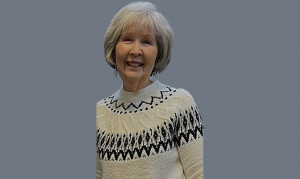Recently President Donald Trump spoke to the National Prayer Breakfast in Washington, D.C., as his predecessors have consistently done since 1953.
Called the Presidential Prayer Breakfast until 1970, the event routinely attracts 3,000 or more people to pray for the country and world and hear addresses by religious luminaries.
Originally organized by Methodist minister Abraham Vereide and Republican Senator Frank Carlson of Kansas and sponsored by Fellowship Foundation, it also provides a forum for presidents to discuss their faith. Billy Graham convinced Dwight Eisenhower to address the first breakfast, where he characteristically declared that “all free government is firmly founded in a deeply felt religious faith.”
Presidents have often used their speeches at the National Prayer Breakfast to accentuate their own faith commitments, improve their image, promote their agendas, and highlight issues about which faith communities care deeply and problems they can help combat.
Donald Trump’s critique of the low ratings of Arnold Schwarzenegger’s “The New Celebrity Apprentice” and the former California governor’s rebuttal (offering to switch places with Trump) garnered the most media attention from this year’s National Prayer Breakfast. What, however, did Trump say that provides insights into his own faith?
Trump said little about his faith during the 2016 presidential campaign. Unlike many other candidates for the Republican nomination, most notably Ted Cruz, Ben Carson, Jeb Bush, and Marco Rubio, he seldom attends church, displays scant knowledge of the Bible or interest in prayer, and rarely uses religious rhetoric.
Unlike his Republican predecessors George W. Bush, George H. W. Bush, and Ronald Reagan, he has not been outspoken about a commitment to Jesus Christ.
More than 80 percent of evangelicals voted for Trump in the 2016 election, but they did so primarily because of his position on issues such as abortion and religious liberty, his promise to nominate politically conservative Supreme Court justices, and their dislike of Hillary Clinton and her policies, not because of his religious convictions and character.
So, more than three weeks into his already tumultuous presidency, what can we learn about Trump’s faith from his remarks at the breakfast? Trump spoke briefly about his religious background. “I was blessed,” he asserted, “to be raised in a churched home.” Trump swore his inaugural oath on the Bible his mother used to teach him when he was a child, and he insisted that “faith lives on in my heart every single day.”
Much more than in his campaign, Trump accentuated the importance of faith in God. It “has inspired men and women to sacrifice for the needy,” fight wars overseas, and work to ensure equal rights for all Americans. “As long as we have God,” Trump proclaimed, “we are never, ever alone. God will always give us solace and strength, and comfort.” Elected leaders must continually ask “God for the wisdom to serve the public, according to his will.”
Like many of his predecessors, Trump affirmed the value of prayer and thanked Americans for praying for him. “Your faith and prayers have sustained me and inspired me through some very, very tough times.” The five words he hears repeatedly as he travels the country that continually “touch my heart” are “I am praying for you.”
Trump labeled America “a nation of believers” and insisted (despite his frequent lauding of his own business achievements and wealth) that “the quality of our lives is not defined by our material success, but by our spiritual success.” Trump even noted that many of his friends who have had “great material success” are “very, very miserable, unhappy people.” Those who have “great families” and “great faith,” Trump declared, are the truly successful ones.
Trump insisted that freedom “is a gift from God,” “not a gift from government.” One essential freedom, Trump asserted, “is the right to worship according to our own beliefs.”
The president promised to repeal the Johnson Amendment to enable faith leaders to “speak freely” “without fear of retribution.” Adopted in 1954, this amendment prohibits churches and other charitable organizations from supporting or opposing political candidates. If clergy endorse or oppose candidates from their pulpits, their churches risk losing their tax-exempt status.
Underscoring one of his campaign promises, Trump pledged that his “administration will do everything in its power to defend and protect religious liberty in our land.” He said that “America must forever remain a tolerant society,” where everyone is “respected and where all of our citizens can feel safe and secure.” This comment appears to contradict Trump’s blatant disrespect of various groups in American society.
Trump used his speech to defend his immigration policy. He argued that the United States “has the most generous immigration system in the world.” However, we must bar those who want to enter our country to spread violence and oppress others “based upon their faith or their lifestyle.” He promised “to help ensure that those admitted into our country fully embrace our values of religious and personal liberty” and love Americans and their values.
The speech expressed the typical Trump bravado and bluster: “The world is in trouble, but we’re going to straighten it out…. That’s what I do. I fix things.” The United States is taken advantage of by almost every nation in the world, he added. “It’s not going to happen anymore.”
So how should we interpret Trump’s speech? Is this civil religion at its finest? Is it preaching to the choir? Does it truly express his heart-felt convictions?
Time will tell. Thus far Donald Trump’s demeanor, character, and policies seem to be little connected with the religious values he praised in his remarks, but let us hope and pray that they guide his presidency.
[Dr. Gary Scott Smith chairs the history department at Grove City (Penn.) College and is a fellow for faith and politics with The Center for Vision & Values. He is the author of “Religion in the Oval Office” (Oxford University Press, 2015), “Faith and the Presidency From George Washington to George W. Bush” (Oxford University Press, 2009), “Religion in the Oval Office” and “Heaven in the American Imagination” (Oxford University Press, 2011).]











Leave a Comment
You must be logged in to post a comment.